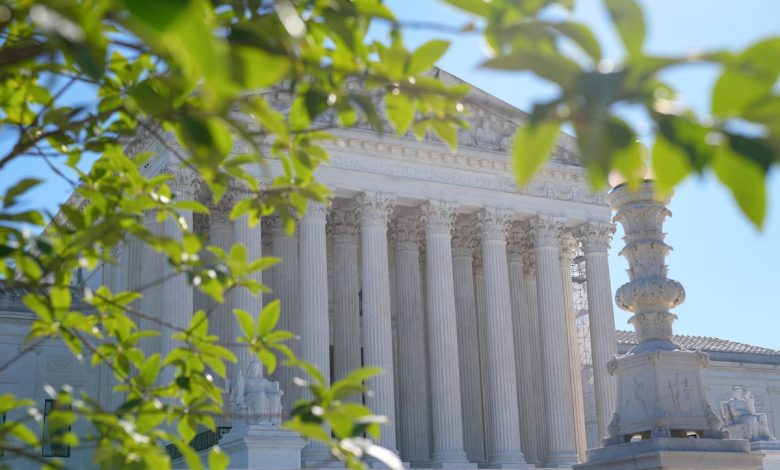Supreme Court hears arguments on veterans benefits appeals rules

The Supreme Court heard oral arguments Wednesday in a veterans benefits case which could have wide-ranging impact on applicants’ options to appeal decisions denying them payouts.
Justices likely won’t rule on the case — Bufkin v. McDonough — for months. But the issues involved are being closely monitored by veterans advocates and Department of Veterans Affairs leaders, given the potential changes mandated by the eventual decision.
At issue is how the U.S. Court of Appeals for Veterans Claims and other judicial review boards must interpret the “benefit of the doubt” rule regarding veterans disability claims. Under federal statute, VA adjudicators are required to rule in favor of veterans applying for benefits support “when there is an approximate balance of positive and negative evidence.”
Advocates have long argued that VA does not follow that standard, requiring veterans to prove their injuries and eligibility beyond doubt to receive payouts.
RELATED
In 2002, Congress passed legislation requiring the Veterans Appeals Court to ensure the “benefit of the doubt” rule was followed properly in the disability claims process. But court officials have argued that only applies in cases of clear errors, and does not mandate a full review of the case evidence.
The case before the Supreme Court centers on two veterans: Joshua Bufkin, who served in the Air Force from 2005 and 2006, and Norman Thornton, who served in the Army from 1988 to 1991. Both men applied for disability benefits related to injuries they say occurred while serving.
Bufkin was denied a claim for post-traumatic stress disorder, while Thornton was granted a 10% rating for the same condition. Both appealed the decisions and lost.
Lawyers for the men said that subsequent judicial reviews did not conduct a full review of the case, to include whether the “benefit of the doubt” standard was followed. A federal appeals court ruled two years ago that such a move was not needed.
In arguments before the Supreme Court Tuesday, Melanie Bostwick, counsel for the plaintiffs, said that the language adopted by Congress clearly mandates that an appeals panel “has to do a check and make sure that the decisions that it is about to affirm complied with the law.”
But lawyers for the government argued that requiring a full additional review of evidence would be duplicative and inefficient.
In a supporting brief filed ahead of Wednesday’s arguments, officials from the National Veterans Legal Services Program lamented that federal officials’ current practices “have ensured that it is the agency that gets the benefit of the doubt, not veterans … it exacerbates the very problems Congress sought to solve through its [legislation].”
Similarly, officials from Disabled American Veterans offered support for the plaintiffs and said the case “presents a question that is important to the nation’s disabled veterans and their families,” calling the current review procedures “troubling.”
A final decision on the case is expected from the Supreme Court next spring.
Leo covers Congress, Veterans Affairs and the White House for Military Times. He has covered Washington, D.C. since 2004, focusing on military personnel and veterans policies. His work has earned numerous honors, including a 2009 Polk award, a 2010 National Headliner Award, the IAVA Leadership in Journalism award and the VFW News Media award.
Read the full article here







